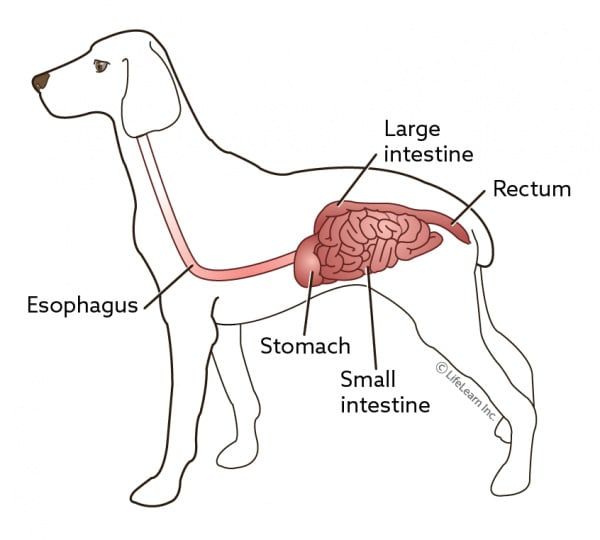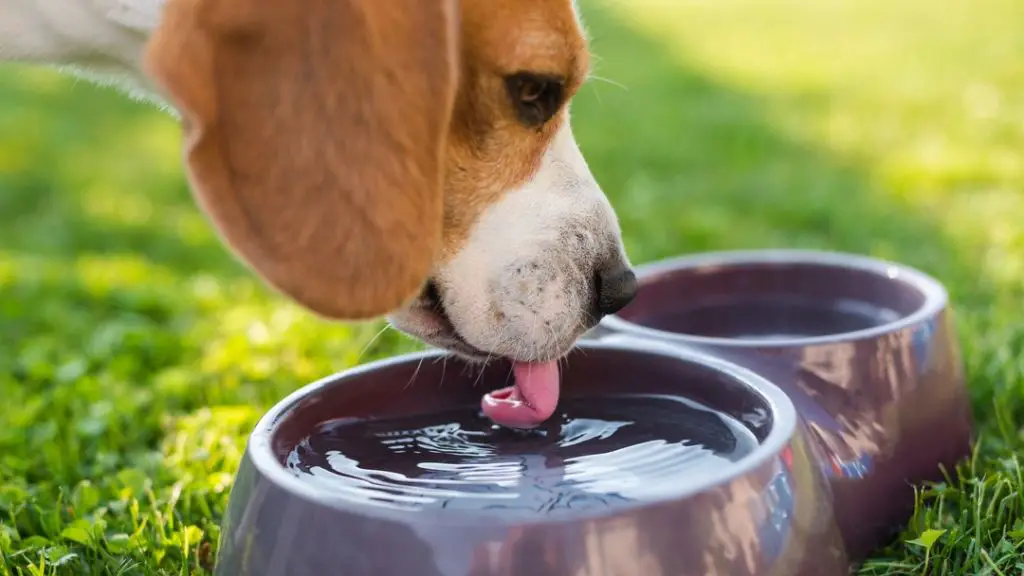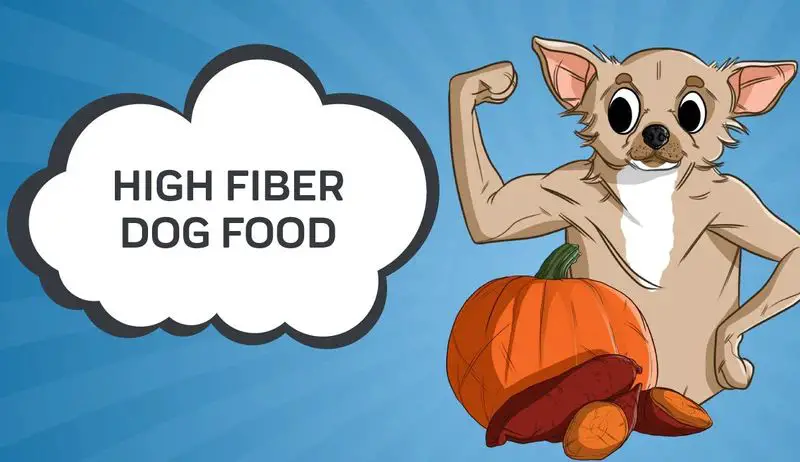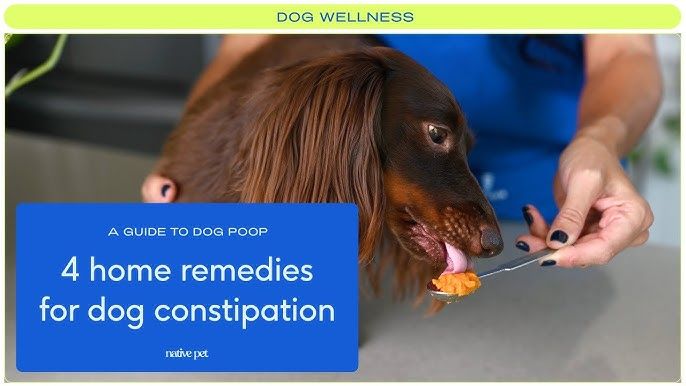Introduction
Constipation is a common condition in dogs that occurs when stool becomes abnormally dry and difficult to pass. This can lead to symptoms like straining, restlessness, vocalization, and even yelping when trying to defecate. While constipation itself may not be serious, the discomfort and pain it causes dogs can be quite distressing. Understanding the causes, symptoms, and treatments for canine constipation can help dog owners address this issue promptly and relieve their pet’s suffering.
According to Vets Now (https://www.vets-now.com/pet-care-advice/constipation-in-dogs/), constipation in dogs often presents with symptoms like struggling to poop, passing small amounts of hard stool, not pooping at all, and appearing to be in discomfort or pain when trying to defecate. These symptoms arise from the colon’s inability to properly push out dry, hardened feces. The resulting buildup puts pressure on the colon, causing dogs distress. This distress can lead to vocalizations like whining, yelping, and crying when attempting to poop.
What is Constipation in Dogs?
Constipation in dogs is defined as difficulty or inability to pass hard, dry stools. This happens when the stool stays in the colon for too long and loses moisture, making it difficult for the dog to defecate. Some common causes of constipation in dogs include:
- Diet – Eating too much dry food or scraps with little fiber can lead to constipation.
- Lack of exercise – Inactive dogs have slower gastrointestinal motility leading to constipation.
- Dehydration – Without adequate fluid intake, the stools harden.
- Certain medications – Some drugs like diuretics, antihistamines, opioids cause constipation as a side effect.
Dogs with constipation strain excessively to pass hard, dry stools. They may pass small amounts of stool frequently or not defecate at all for prolonged periods. This can be very uncomfortable or even painful for dogs.
Common Symptoms of Canine Constipation
Some of the most common symptoms of constipation in dogs include:
-
Straining and difficulty passing stool – Dogs with constipation will often strain and struggle when trying to defecate, sometimes even crying out in discomfort. The stool itself is often dry, hard, and small in quantity. Constipated dogs may frequently visit the area where they go to the bathroom but produce little or no feces.
-
Decreased appetite – Lack of appetite is a possible sign of constipation in dogs. The abdominal bloating and discomfort may make them not want to eat as much.
-
Restlessness, whining, and vocalization – Dogs with constipation may seem restless or agitated. They may whine, yelp, or cry out, especially when straining to pass stool. This vocalization can indicate distress and pain.
-
Abdominal pain and bloating – Constipation leads to distension and inflammation of the colon, causing abdominal pain, cramping, and bloating. Dogs may repeatedly turn around to look at their hindquarters.

According to Purina, tense abdomen and hard, dry stools are common symptoms as well (source). Straining can sometimes be mistaken for difficulty urinating. If your dog hasn’t passed stool in 2 or more days, constipation may be the cause, says Westchester Veterinary Medical Center (source).
Why Constipation May Lead to Yelping
Constipation causes stools to become hard, dry, and difficult to pass. Dogs experiencing constipation will often strain excessively to defecate, pushing hard to pass the hardened stools. This excessive straining can cause pain and discomfort in the rectum, colon, and abdomen.
When dogs feel abdominal discomfort or pain associated with constipation and straining, they may begin vocalizing and yelping. The act of trying to pass a large, hard stool puts pressure on the colon and rectum, which can cause cramping sensations. Dogs may yelp or cry out when experiencing these unpleasant sensations.
According to veterinarians, one of the most common reasons dogs strain, whimper, and yelp while defecating is constipation and discomfort passing stool. The pressure and pain associated with the blockage leads to vocalizations of discomfort or distress [1].
Vets say that dogs may yelp while pooping not only from the pain and pressure in the colon, but from straining so forcefully that it stresses the abdominal muscles and causes general lower abdominal soreness. The intense abdominal pressure can also trigger nausea in some dogs, further adding to their distress and vocalizations [2].
When to See the Vet
If your dog’s constipation persists for more than 1-2 days without improvement, it’s time to see the vet. According to the AKC, you should call the vet as soon as you become aware of the problem, as constipation can be a sign of a serious underlying issue.
Some specific signs that warrant a vet visit include:
- Vomiting
- Lethargy
- Refusing to drink water
- Refusing to eat for longer than 1 day

As Chewy notes, chronic constipation or severe constipation (called obstipation) requires prompt veterinary attention. The longer your dog goes without pooping, the more serious the situation becomes.
Seeing the vet helps identify the underlying cause and allows for appropriate treatment to relieve constipation. Don’t try to treat persistent constipation at home without input from your vet, as some home remedies may make the problem worse.
Home Remedies and Treatments
There are several at-home remedies and treatments that can help relieve constipation in dogs. The main goals are to increase hydration and add fiber to the diet to help move things along.
Increasing exercise and water intake are simple but effective ways to help alleviate constipation. Taking your dog on more frequent, longer walks can help stimulate their digestive system. Make sure fresh water is always available and encourage your dog to drink more throughout the day. Adding some low-sodium chicken or beef broth to their water can make it more enticing.
Adding fiber to your dog’s diet, either through foods or supplements, is commonly recommended. Some high-fiber foods to try mixing into their regular kibble include:
- Canned pumpkin (not pie filling)
- Cooked sweet potatoes
- Bran flakes or oats
- Green beans

Fiber supplements like metamucil or Benefiber can also help regulate your dog’s digestive tract. Always start with small amounts and gradually increase to the recommended dosage.
Other natural laxatives like coconut oil, olive oil, or mineral oil can lubricate the colon to stimulate bowel movements. Give 1 tsp per 10 lbs of body weight with food. It often works within 12-24 hours.
Medical Treatments
If home remedies don’t relieve your dog’s constipation, your veterinarian may recommend medical treatments. Common options include:
- Laxatives – These help stimulate bowel movements and soften stool. Types include milk of magnesia, mineral oil, and lactulose.
- Stool softeners – These help retain moisture in the stool to allow easier passing. Docusate is a commonly prescribed stool softener.
- Enemas – For severe cases, enemas can help manually stimulate and lubricate the colon to induce bowel movements.
The specific treatment depends on the underlying cause of your dog’s constipation. Your vet will determine if an obstruction, tumor, medication side effect, or other issue is responsible. They may need to adjust your dog’s diet or prescribe medication to address the root cause.
With appropriate treatment prescribed by your veterinarian, most dogs find relief from constipation. Be sure to follow your vet’s instructions carefully and monitor your dog for improvement.

Preventing Constipation
There are a few key things you can do to help prevent constipation in your dog:
Proper hydration is essential. Make sure your dog always has access to fresh, clean water. Dehydration can lead to constipation in dogs. You may need to add some water to your dog’s kibble or wet food to increase moisture intake.
Feed your dog a high-fiber diet. Fiber helps move food through the digestive tract more easily. Talk to your vet about supplements or prescription dog foods that are high in fiber.
Regular exercise helps stimulate the digestive system and keep things moving through the intestines. Take your dog for daily walks or playtime.
Routine veterinary checkups allow your vet to monitor your dog’s health and watch for any concerning changes or issues that could lead to constipation.
With proper hydration, diet, exercise, and veterinary care, you can help prevent uncomfortable constipation in your canine companion.
When to Worry
Though constipation is common and often not a cause for concern, there are times when you should contact your veterinarian. According to Blackmores, you should worry if your dog’s constipation persists for more than 48 hours without improvement. Prolonged constipation can lead to obstipation, where the stool hardens and blocks the rectum. This requires urgent veterinary attention.
You should also contact your vet immediately if your dog shows signs of abdominal pain, vomiting, or lethargy along with constipation. These may indicate a more serious health issue, such as a gastrointestinal obstruction. Abdominal pain and straining to pass stool can also lead to rectal prolapse, where part of the rectum sticks out of the anus. This is a medical emergency requiring prompt veterinary treatment.
In summary, see your vet right away if your dog’s constipation lasts over 48 hours or is accompanied by concerning symptoms like abdominal pain, vomiting, lethargy, or rectal prolapse. Prompt veterinary attention can relieve your dog’s discomfort and prevent potentially serious complications.
Conclusion
Constipation is a common condition in dogs that can lead to uncomfortable symptoms including the dog yelping or crying when trying to defecate. The yelping and vocalization are likely due to the pain and discomfort associated with straining to pass hard, dry stools. While there are some home remedies and over-the-counter treatments available, it’s important to take your dog to the vet if constipation and yelping persist, as there could be an underlying health issue.
To recap, some of the causes of constipation include diet, dehydration, lack of exercise, and certain medications. Adding fiber to the diet, ensuring adequate hydration, and exercising your dog regularly can help prevent constipation. However, quick home fixes like lubricants and laxatives should only provide temporary relief until you can get veterinary advice. If your dog continues yelping when pooping even after implementing home treatments, be sure to make an appointment with your vet right away.
With the proper diagnosis and treatment plan from your veterinarian, most cases of constipation and associated vocalization in dogs can be relieved. Don’t wait too long before taking your dog in if the symptoms don’t improve, as prolonged constipation can lead to more serious secondary conditions. Address the issue promptly by working together with your vet to get your pup comfortable and back to regular bathroom habits.